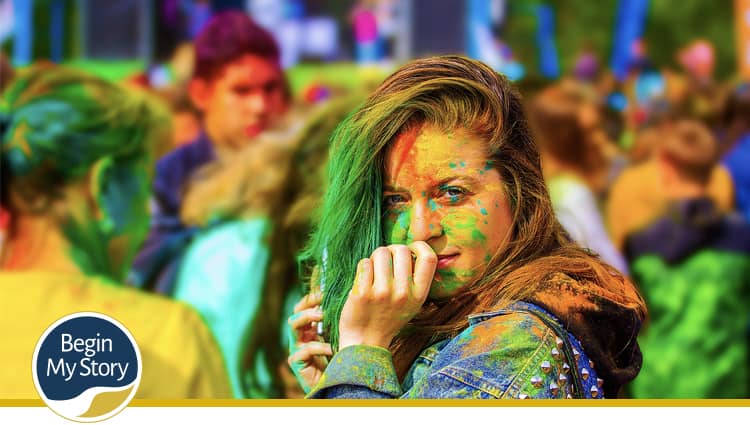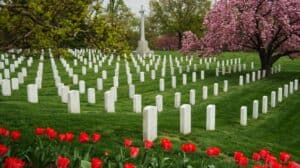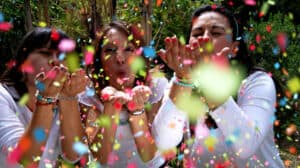
Oral history interviews are an excellent way to learn about the record of everyday life from the extraordinary lives of everyday people.
Of all the various opportunities I have had to learn about, document, and write about individuals in my family, the most important and productive research came from oral history interviews I began to conduct shortly after my mother’s death and in the ensuing six years.
When we talk about oral history, we closely associate the topic with writing individual and family narratives, stories, memoirs. The difference between writing a mediocre and a great story is planning, researching, and carefully stitching the memories and artifacts into a cohesive blend of resources to accurately recount as stories that are interesting and inviting to read for years to come. In this article, we will cover three topics:
- What Are Oral History Interviews?
- What Are the Types of Oral History Interviews?
- What I (Author Schreiber) Learned in the First Ten Oral History Interviews
The actual record of history is found in the lives of ordinary people who lived it. Before you start conducting an interview, it’s essential to understand the advantages and disadvantages of an oral interview.
What are Oral History Interviews?
The oral history interview is the collection and recording of personal memoirs as historical documentation. It emphasizes the significance of the human experience.
Oral history interviews are not the best method for obtaining factual data—such as specific dates, places, or times—because people rarely remember such detail accurately. You will need to use more traditional historical research methods—courthouse records, club minutes, newspaper accounts, and so forth—to help fill in these gaps.
Oral history interviews are the best method to get an idea of what happened, what those times meant to people, and how it felt to be a part of that time.
Oral history interviews are great for capturing eyewitness accounts and reminiscences about events and experiences that occurred during the lifetime of the person being interviewed and for gathering narratives passed down verbally from generation to generation beyond any individual’s lifetime. This includes stories, songs, sayings, memorized speeches, and traditional accounts of past events.
Oral histories provide an added dimension to historical research. An oral history project can aid your research in the following ways:
- Foster appreciation for little-known or rapidly vanishing ways of life.
- Verify the historical nature of events that traditional methods of historical research cannot determine.
- Correct stereotypical images of life, ways, and people.
- Recover and preserve essential aspects of a human experience that would otherwise go undocumented.
What Are the Types of Oral Interviews?
There are four basic types of oral history interviews. They include:
Life histories
These are oral interviews with individuals about their backgrounds from childhood to adulthood. Most of these oral interviews follow a chronology in time. Life histories provide an opportunity to discuss a variety of subjects based on the interviewer’s interests and the interviewee’s remembered experiences and perspectives. They are ideal for writing narratives and learning about family.
Topical histories
These oral interviews are often used for focused studies of particular events, eras, or organizations. Examples include discussing the Depression Era in the local county/community or about an event like a flood, mudslide, or storm that devastated a community. An oral study about World War II in a specific locale, for example, might include interviews about military involvement, civil defense preparedness, the home front, rationing, bond and scrap metal drives, war industries, and myriad related topics.
Thematic histories
These studies focus on broad patterns and concepts. These themes could include love, conflict, hope, religion, education, competition, success, or art. Thematic oral histories are not common, but they present opportunities worth considering.
Histories to document specific artifacts or sites
Oral history interviews may be used, for example, to explain items within a museum collection— how to churn butter, how to operate a Farmall F-12 tractor, how to use a Victrola, how to dress for travel in the 1940s. Another method is to have a subject orally document the history of an individual home, a particular street, an old schoolhouse, a vacant field or an overgrown cotton patch.
What I Learned in the First Ten Oral Interviews
During my mother’s funeral and memorial services, I had many people tell me about their experiences with Mary as a youth, as an adult, and at work. They told me about her service and reshared her thoughts and pride for my siblings and me. I longed to know more about my mother. I realized that I knew very little about my mother. I felt a genuine sorrow and emptiness for wanting to learn more about my mother.
Whenever I asked Mom (Mary Schreiber) about her life while she was living, she replied that it was hard and nothing more needed to be said. Because of my need and desire to learn about my mother, I awkwardly yet earnestly began reaching out to people my mother knew to see if they would allow me to interview them about my mother. Every person gladly agreed. So within three months, I began conducting oral history interviews. The journey started with my conducting oral interviews with family, friends, co-workers, and acquaintances of my mother. I expanded the project also to include discussions related to my father. Over six years, I conducted over 160 hours of oral history interviews.
The first ten oral history interviews were more than people simply answering my questions. They were individuals who had respect, love, and insight into Mary as a mother, friend, and sister. I was discovering the Mary Schreiber I was never privileged to know thoroughly. I loved my mother before, but I loved her even more following the interviews. This group of ten people held the keys to every stage of my mother’s life. They answered my questions honestly, directly, and without any reservation. As a result of the interviews, I learned about the following aspects of my mother’s life:
- Cherished experiences they shared with Mary
- Traits they admired about Mary
- Innermost thoughts Mary shared with them about her life and family
- Her dreams that were dashed by choices in marriage
- Dark, troublesome times of pain and sorrow that was triumphantly overcome
- My heritage and roles of progenitors in preparing a path for me
- Family rifts that were three generations deep
- Identification of photos and other artifacts
- Individuals and families from my heritage whom I should learn more about
- “Skeletons” that were long since buried
- Precious artifacts (photos, cards, letters, scrapbooks, journals) that were given to me to keep or to scan
- Artifacts that existed and where I could find them
There were two important takeaways from those first ten oral interviews for anyone just starting to conduct oral history interviews about individuals or family members. They include:
Conduct oral history interviews with immediate family members. Take time to interview and compare your memories with those who have direct knowledge about the person. This can include siblings, parents, cousins, grandparents, and others. Oral history is about people, who they were, and the stories of their lives. People often share that they want to learn more about individuals and their family heritage.
I will respond with questions like, “What is keeping you from talking to your family?” The replies vary from
- I don’t know how or where to start.
- I don’t get along with some of my family.
- I don’t have time.
- I will wait till I am retired.
I try to emphasize by sharing that those were my feelings exactly. Then I briefly share my experience with the death of my mother and my need to know more. I conclude by gently encouraging them not to wait until after a relative passes on to find information or conduct oral histories. Someone in the family has excellent information. People will and want to talk to you. Because you are willing to take the effort and ask questions, people will go out of their way to help answer your questions and share information and artifacts (e.g., photographs, letters, scrapbooks, journals, video, and more) that are related to your quest. Rest assured that your family will provide answers to your questions and insights that will be invaluable to writing a narrative, story, or memoir.
Oral interviews provide opportunities to locate family records. Oral interviews provide opportunities to locate, identify, catalog, and preserve artifacts significant to the family and why those items are essential. Artifacts can include heirlooms (such as furniture, small collectibles, and photographs), manuscript materials (diaries, letters, and family bibles), and copies of public records (certificates of birth, marriage, death, land, patents, and wills.)
Of the more than 60,000 artifacts I have gathered relating to my mother and father and their ancestral lines, 75 percent have come from conducting interviews with family. Once I was made aware of available information, I was permitted to scan or photograph the artifacts. In several instances, I was given the life-long research of the person I was interviewing because I had an interest shared by anyone else.
Related Content
- Complete Guide to Writing A Personal Narrative
- How to Use Sensory Details and Emotions in A Story
- 12 Easy Steps to Start Writing Your Memoir
- 9 Steps to Writing Your Personal Narrative
- Complete Guide for Conducting Oral History Interviews
- 5 Questions People Ask About Writing A Personal Narrative
- 7 Step Color-coded File Organizing System for Writing Narratives






